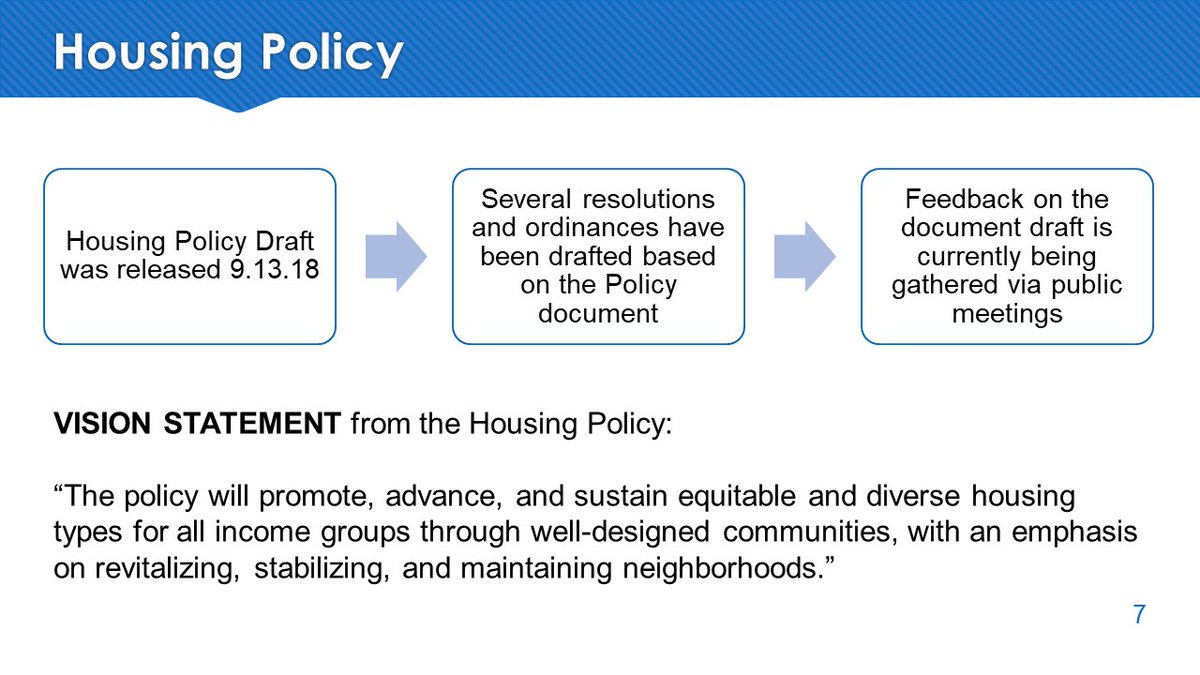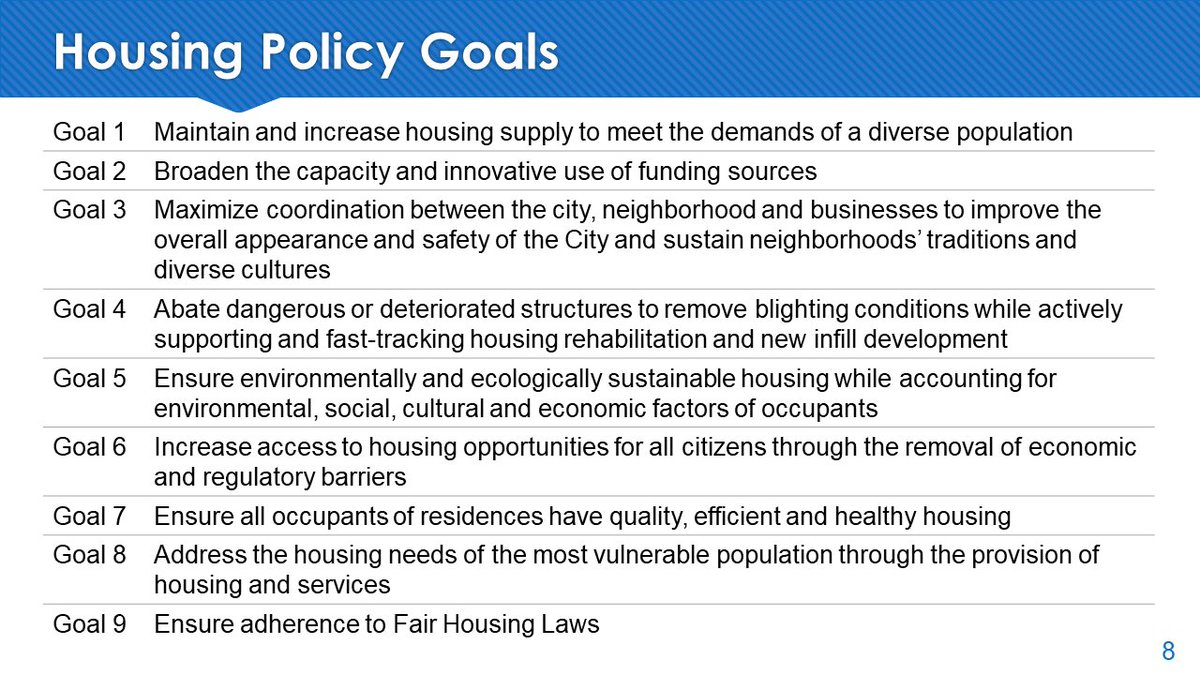Hyser: Our intention is to set a goal and continue to re-evaluate in time. (Boulder typically revisits affordable housing goals every 10 yrs)
Firnhaber kind of dodging the question; doesn't know the answer.
Carlisle: "It's something I think should be noted going forward."
Hyser: I don't have those numbers, but yes, Boulder makes up a big percentage.
75% would go to communities; 25% would be competitive and to fund countywide programs for housing rehab, counseling and down payment assistance.
Brockett: It would be on population, not on assessed value?
Yes, Firnhaber says (not sure where Brockett is going with that; my brain hurts)
Hyser: Preservation is lower: $50K/unit. New construction is closer to $100K/unit. But several factors influence that.
Hyser: More to make it simple when we talk about it to the public. We wouldn't be losing the middle-income goal; it would just fold into the larger one.
No, Firnhaber says. BHP does rent some units below market, but they aren't deed-restricted and aren't counted toward the goal.
Brockett: Yes but would ppl be interested?
Hyser: We're having those convos.
Firnhaber: Current market rents in Boulder are within reach of middle-income
Asks for a 20% goal.
Freirich: As a property owner, I have been personally enriched enormously by it. I can't say that those wage earners who spend $$ in stores have that ability as much.
Tayer: We've talked about approaching commercial land owners to take on residential development instead of commercial. That might get at some of the points you're making; it's a convo we'd have.
Wants to add a 20% goal to get to eventually.
Wants a second-home tax, too. "I'm loath to thinking of putting in a property tax. I see it as inequitable for the ppl and biz who have been living and working here who are trying to maintain as things are going up astronomically."
Morzel wants more middle-income: "While it's laudable, it's not enough."
Morzel: "I know. But I think we're going to become a community very much of the haves and have-nots."
"A few of the demolitions are completely justifiable. Most of the demolitions we see are completely ridiculous."
Carlisle: Not 2019. I think we need to hear from more of the community. The last ballot item on affordable housing went down.
Truer words were never spoken.
Carlisle: I think they have to be across the board, so we couldn't do that.
Carr: There are restrictions in state law. It can't look like an income tax. Summit County has adopted a second home tax.
Morzel: "The last time we did this was 2000." It didn't pass.
Would not support a 2019 ballot measure. "If it goes down again, we're done. For a long time."
Jones: Regional transit!
@threadreaderapp please unroll this. Thank you.






